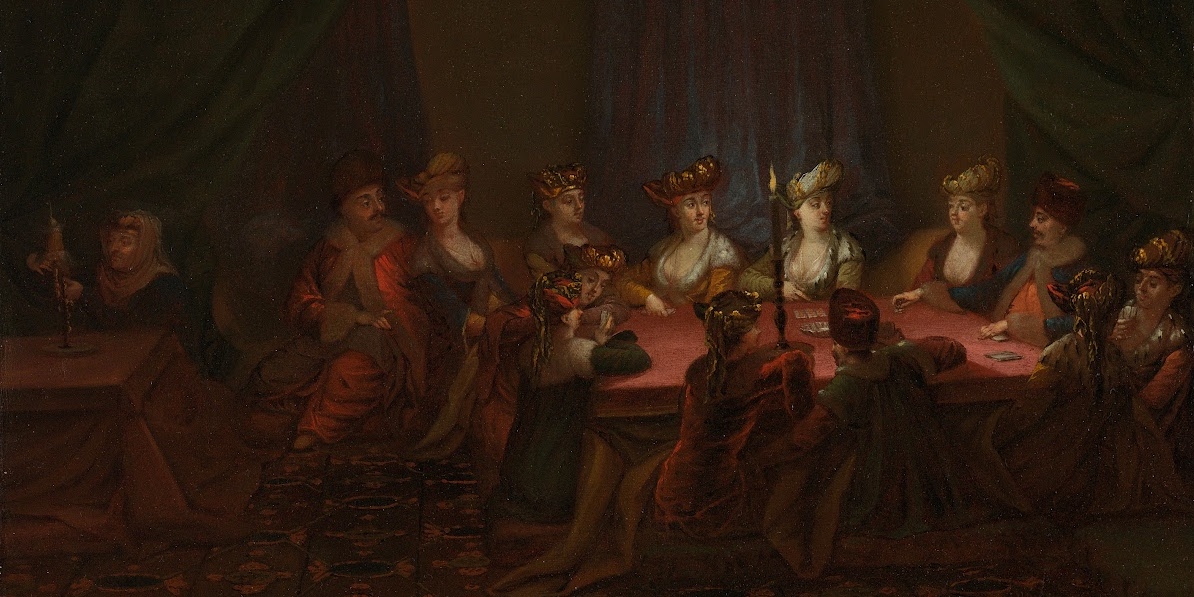The Maghreb in the Gramophone Era
| The history of North Africa is usually framed by the period of French colonialism and the era of independent nations that followed. But what happens if we let an object like the 78 rpm record do the work of periodization? In this episode, we talk to Christopher Silver about the unique vantage point that gramophone records offer on the emergence of national culture in the Maghreb during the first half of the 20th century. We will explore the work of artists whose lives straddled Tunisia, Algeria, and Morocco as well as the colonial metropoles, and we will highlight the role of North African Jewish singers, musicians, producers, and promoters in the development of the region's music industry.

 | Click for RSS Feed | 
|

|
The history of North Africa is usually framed by the period of French colonialism and the era of independent nations that followed. But what happens if we let an object like the 78 rpm record do the work of periodization? In this episode, we talk to Christopher Silver about the unique vantage point that gramophone records offer on the emergence of national culture in the Maghreb during the first half of the 20th century. We will explore the work of artists whose lives straddled Tunisia, Algeria, and Morocco as well as the colonial metropoles, and we will highlight the role of North African Jewish singers, musicians, producers, and promoters in the development of the region's music industry.
For more music and information about North African recording artists of the gramophone era, visit Christopher Silver's website Gharamophone.
For more music and information about North African recording artists of the gramophone era, visit Christopher Silver's website Gharamophone.
Contributor Bios
 |
Christopher Silver is the Segal Family Assistant Professor in Jewish History and Culture in the Department of Jewish Studies at McGill University. He earned his PhD in History from UCLA. He is the author of numerous articles on history and music in North Africa, including most recently in the International Journal of Middle East Studies. |
 |
Chris Gratien is Assistant Professor of History at University of Virginia, where he teaches classes on global environmental history and the Middle East. He is currently preparing a monograph about the environmental history of the Cilicia region of the former Ottoman Empire from the 1850s until the 1950s. |
Credits
Episode No. 498
Release Date: 22 March 2021
Recording Location: Montreal / Charlottesville, VA
Sound production by Chris Gratien
Additional thanks to Sam Dolbee, Aslıhan Gürbüzel, and Alma Heckman
For more music and information about North African recording artists of the gramophone era, visit Christopher Silver's website Gharamophone.
Release Date: 22 March 2021
Recording Location: Montreal / Charlottesville, VA
Sound production by Chris Gratien
Additional thanks to Sam Dolbee, Aslıhan Gürbüzel, and Alma Heckman
For more music and information about North African recording artists of the gramophone era, visit Christopher Silver's website Gharamophone.
Images and bibliography courtesy of Christopher Silver
Further Listening
 |
Richard Breaux | 494
2/23/21
|
Musical Archives of the Midwest Mahjar |
 |
Panayotis League | 463
5/3/20
|
The Journeys of Ottoman Greek Music |
 |
Sarah Abrevaya Stein | 434
11/20/19
|
Family Papers and Ottoman Jewish Life After Empire |
 |
Evyn Lê Espiritu, Margaux Fitoussi, & Kais Khimji | 332
9/10/17
|
History, Diaspora, and Politics |
 |
Jonathan Wyrtzen | 269
9/15/16
|
Colonialism and the Politics of Identity in Morocco |
 |
Jennifer Johnson | 277
10/31/16
|
Decolonization, Health Care, and Humanitarianism in Algeria |
 |
Pierre Daum | 302
3/2/17
|
Les harkis restés en Algérie: tabou et non-dits |
Track List
Sariza - Plainte ["Chekoua"] (Polydor, c. 1936-1938): https://soundcloud.com/gharamophone/sariza-plainte-chekoua-polydor-c-1936-1938
Khailou Esseghir et Sion – Gheita, (Columbia, c. 1930): https://soundcloud.com/gharamophone/khailou-esseghir-et-sion-gheita-columbia-c-1930
Samy Elmaghribi - Allah, Ouatani Oua-Soultani (Samyphone, 1956): https://soundcloud.com/gharamophone/samy-elmaghribi-allah-ouatani
Salim Halali - Ardjaâ Lebladek - Side 1 (Pathé, 1939): https://soundcloud.com/gharamophone/salim-halali-ardjaa-lebladek-side-1-pathe-1939
Salim Halali - Je t'appartiens (Pathé, c. 1945): https://soundcloud.com/gharamophone/salim-halali-je-tappartiens-pathe-c-1945
Habiba Messika - Anti Souria Biladi, (Baidaphon, c. 1928): https://soundcloud.com/gharamophone/habiba-messika-anti-souria-biladi-baidaphon-c-1928
Louisa Tounsia - Ouinek-Ouinek (Columbia, c. 1953-1954): https://soundcloud.com/gharamophone/louisa-tounsia-ouinek-ouinek-columbia-c-1953-1954
Images

Samy Elmaghribi’s hit nationalist anthem, “Allah, Ouatani oua-Soultani,” released on his own Samyphone label in 1956. Personal collection of Silver.

Habiba Messika on the front cover of L'Éclaireur du dimanche, 3 February 1929. Courtesy Gallica-BnF.

Promotional bookmark for Salim Halali's Le Coq d'Or cabaret in Casablanca, late 1950s. Personal collection of Silver.
Select Bibliography
Aomar Boum, Memories of Absence: How Muslims Remember Jews in Morocco (Stanford University Press, 2013).
Ruth F. Davis, Maʻlūf: Reflections on the Arab Andalusian Music of Tunisia (Scarecrow Press, 2004).
Michael Denning, Noise Uprising: The Audiopolitics of a World Musical Revolution (Verso, 2015).
Dynamic Jewish-Muslim Interactions in Performance Art, 1920-2020, eds., Sami Everett and Rebekah Vince (Liverpool University Press, 2020).
Jonathan Glasser, The Lost Paradise: Andalusi Music in Urban North Africa (University of Chicago Press, 2016).
Alma Rachel Heckman, The Sultan's Communists: Moroccan Jews and the Politics of Belonging (Stanford University Press, 2020).
Ethan Katz, "Did the Paris Mosque Save Jews? A Mystery and Its Memory," The Jewish Quarterly Review, Vol. 102, No. 2 (Spring 2012), 256-287.
Hadj Miliani, "Crosscurrents: Trajectories of Algerian Jewish Artists and Men of Culture since the End of the Nineteenth Century," Jewish Culture and Society in North Africa, eds. Emily Benichou Gottreich and Daniel J. Schroeter (Indiana University Press, 2010), 177-187.
Rebecca P. Scales, "Subversive Sound: Transnational Radio, Arabic Recordings, and the Dangers of Listening in French Colonial Algeria, 1934–1939," Comparative Studies in Society and History, 2010, 52(2): 384–417.
Christopher Silver, “The Sounds of Nationalism: Music, Moroccanism, and the Making of Samy Elmaghribi,” International Journal of Middle East Studies, 2020, vol. 52, no. 1: 23-47.











Comments
Post a Comment
Due to an overwhelming amount of spam, we no longer read comments submitted to the blog.